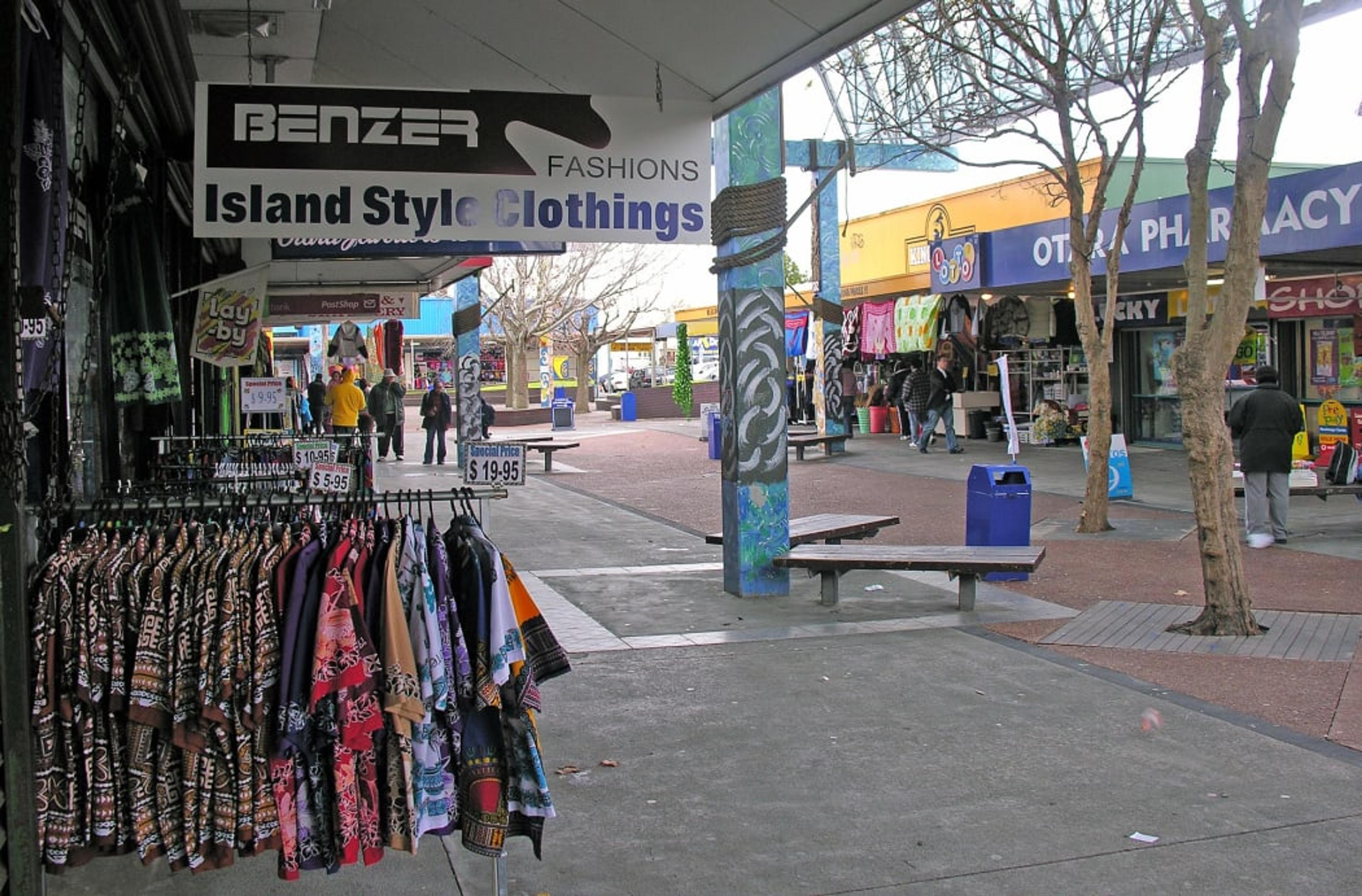
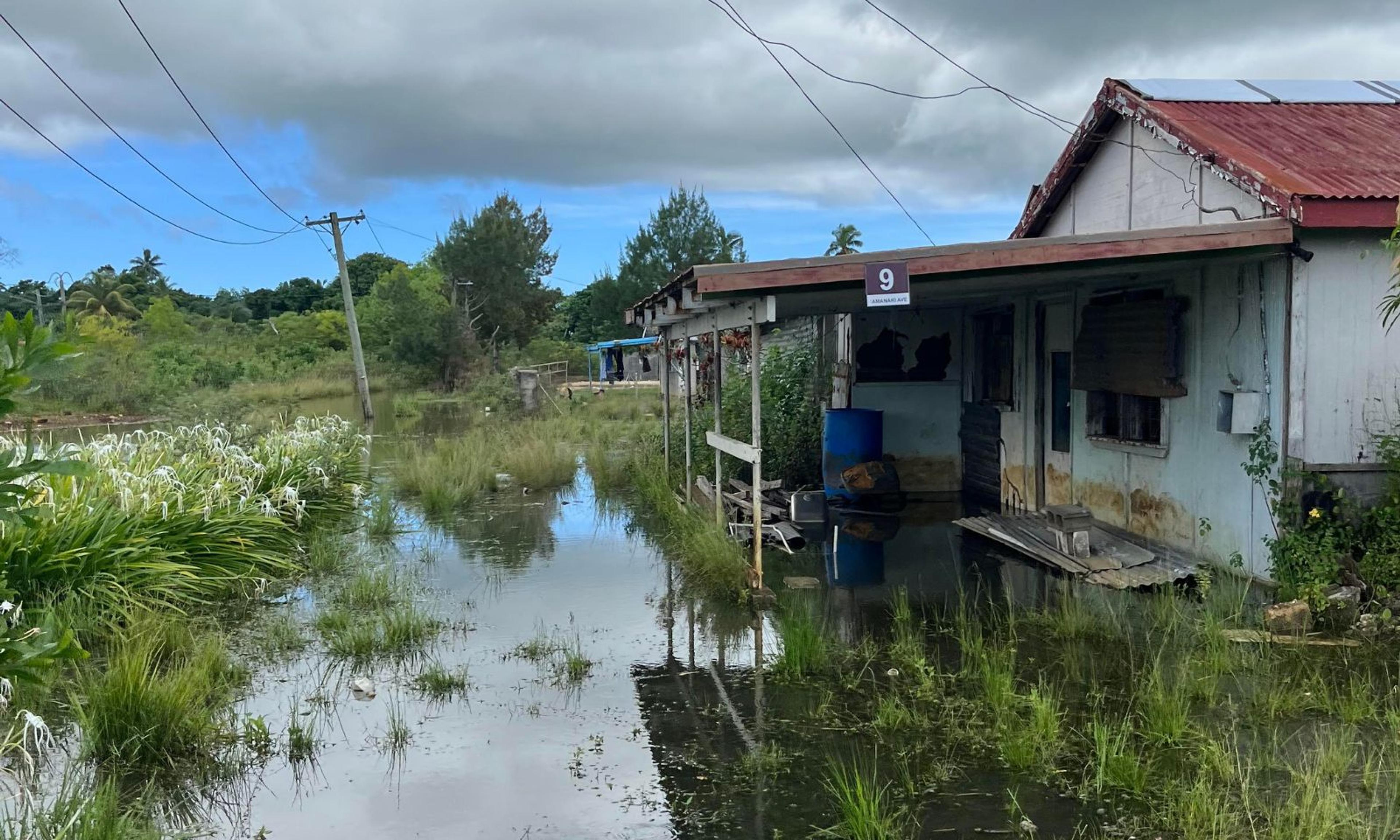
A home in Kolomotu’a, Tonga, a low-lying village with persistent flooding issues following heavy rain.
Photo/Supplied
Māori leaders strategise to support Pacific countries battling climate challenges
As part of a research project, six iwi heads are having ‘crucial conversations’ about one of the biggest issues Pacific people face.

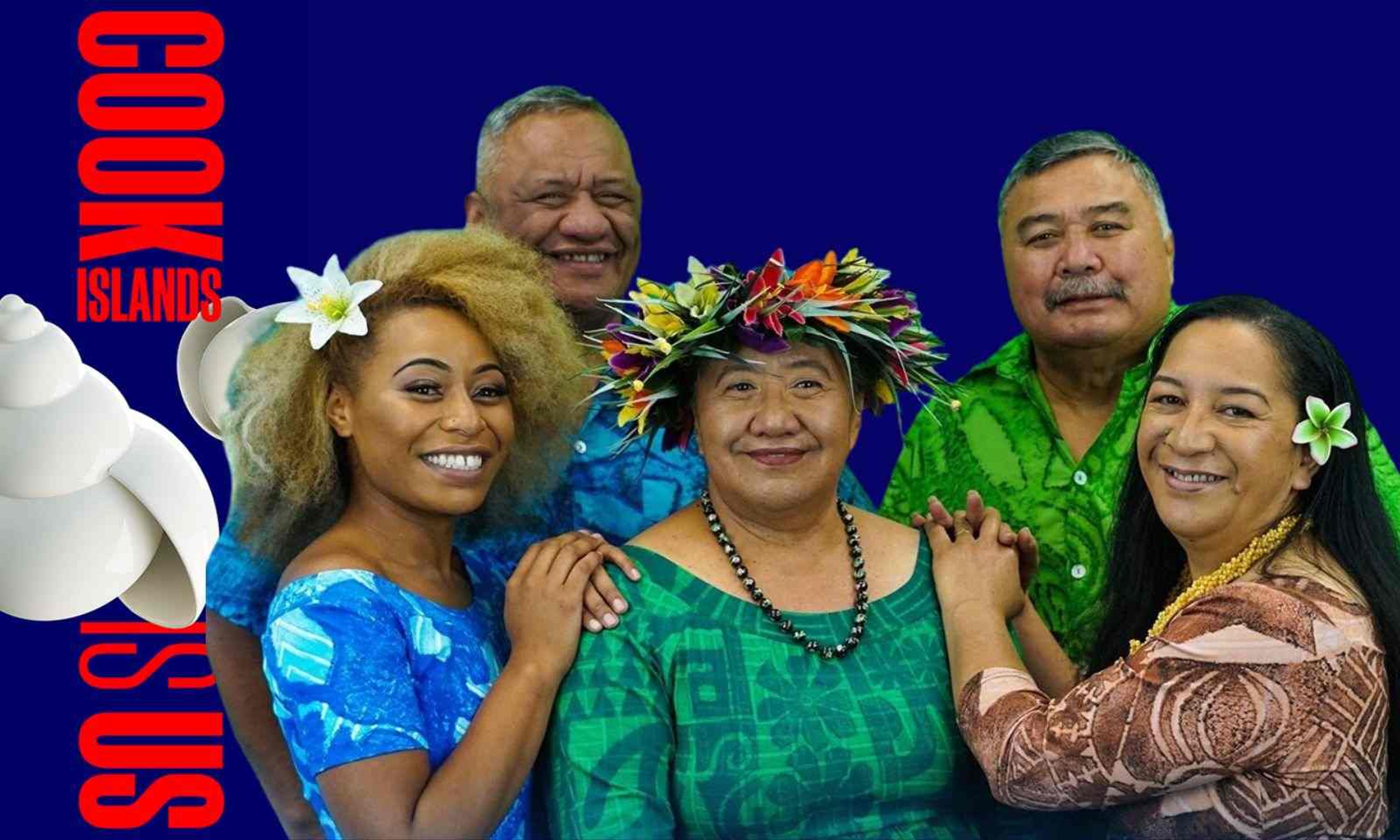

Fijian-Rotuman becomes first ever V8 Supercar driver of Pacific heritage
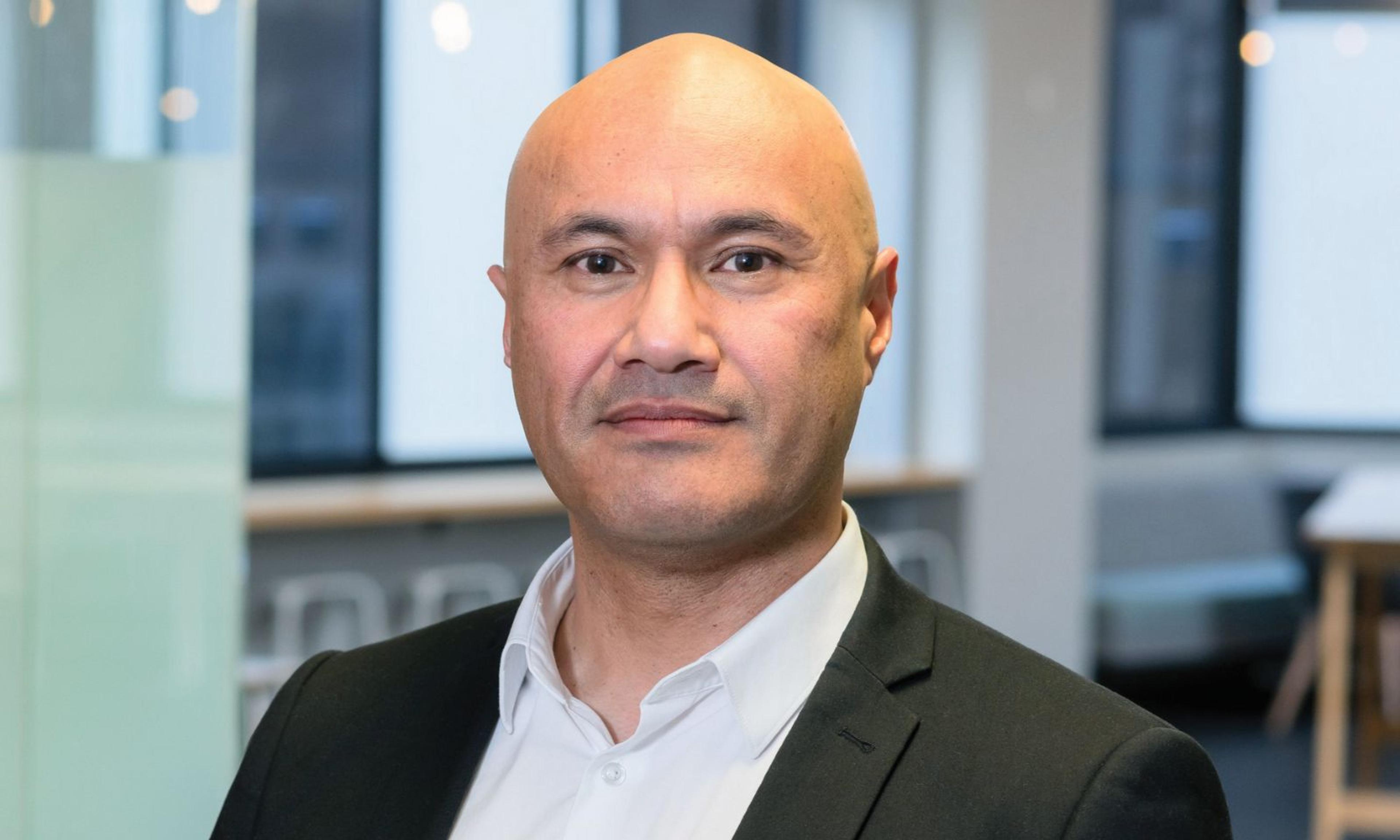



Fijian-Rotuman becomes first ever V8 Supercar driver of Pacific heritage

How Māori can support their Pacific cousins with the challenges of climate change is the focus of new research being conducted at Waikato university.
University of Waikato (UoW) professor of Māori and Indigenous Studies Sandy Morrison (Ngāti Whakaue, Ngāti Maniapoto, Ngāti Rārua) has started discussions with six esteemed iwi leaders as part of research around Pacific climate change mobility and the role Aotearoa has to play.
The research project centres on the climate crisis affecting mobility in Samoa and Tonga, with Morrison leading one of the project's outputs titled, Six Kōrero. She believes Six Kōrero represents a unique start to a critical conversation as to why tangata whenua should care.
Speaking on Pacific Mornings alongside UoW’s team project lead Lora Vaioleti, Morrison says given the role of tangata whenua is to manaaki (support) it was important to push critical thinking amongst the leaders.
“Our whakapapa connections run deep, we have shared cultural values, stories, shared commitment to the ocean and each other, and intergenerational knowledge that we want to share.
“We started off by thinking about the role of tangata whenua and mana whenua when and if mobility does occur … we wanted to create space and bring Māori leadership into the research and say, ‘what is our role?’.”
Morrison adds the direction of discussions were future focussed and gave thought to potential opportunities with the leaders agreeing Māori play an integral role in showing manaaki.
The small team from UoW includes Professor Sandy Morrison, who is the Pou Māori for the whole research programme, Project Lead Lora Vaioleti, and Dr Timote Vaioleti. Together they’re conducting a two-year project about how climate change affects migration from Tonga and Samoa.
Funded by New Zealand Ministry of Foreign Affairs and Trade (MFAT), the project sits within an overall programme of work that commenced in late 2022, and covers nine Pacific nations and their populations and is delivered by the University of Waikato, University of Auckland, and Mana Pacific Consulting.
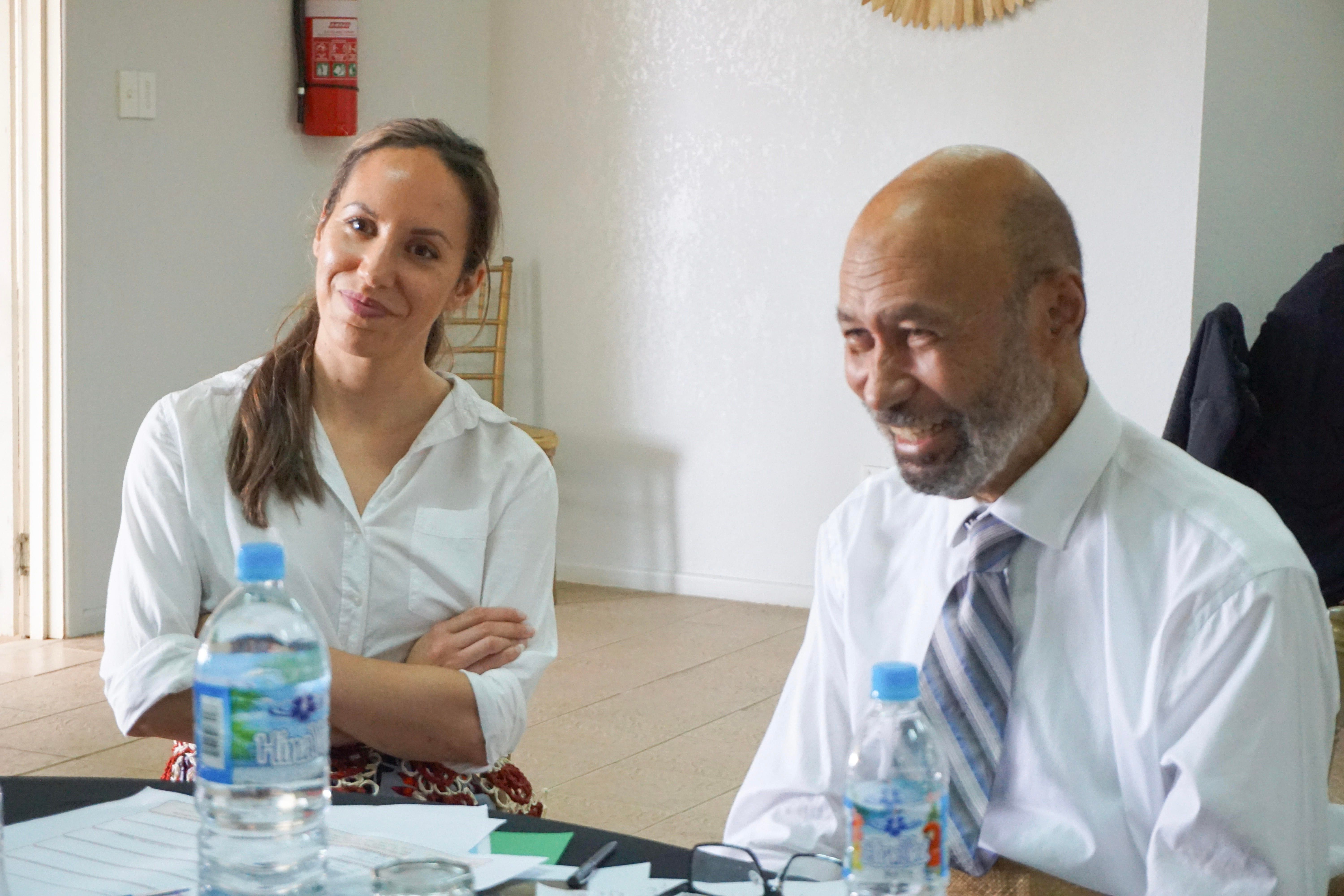
Lora Vaioleti with Dr Timote Vaioleti who led the Pacific methodologies of the research. Lora says he brings significant mana to the works. Future scenarios workshop, Nuku’alofa Tonga, July 2023. Photo/Supplied
From their studies so far, the UoW team staunchly believe the scientific projections are clear that people in places like Tonga and Samoa will be displaced from their homes in the coming years because of climate change.
A reality that Lora Vaioleti says needs to be faced as a Pacific region, limiting harm for those who have to move and those who receive people who move.
“This is a matter that is bigger than the government of the day and the impacts - for better or worse - will be generational. It's critical that more effort is invested in preparation.”
Their findings have shown climate change mobility is already in motion and communities expect inevitable displacement. And a concern raised among the Six Kōrero leaders is that if Pacific peoples vacate the Pacific, who then takes their place?
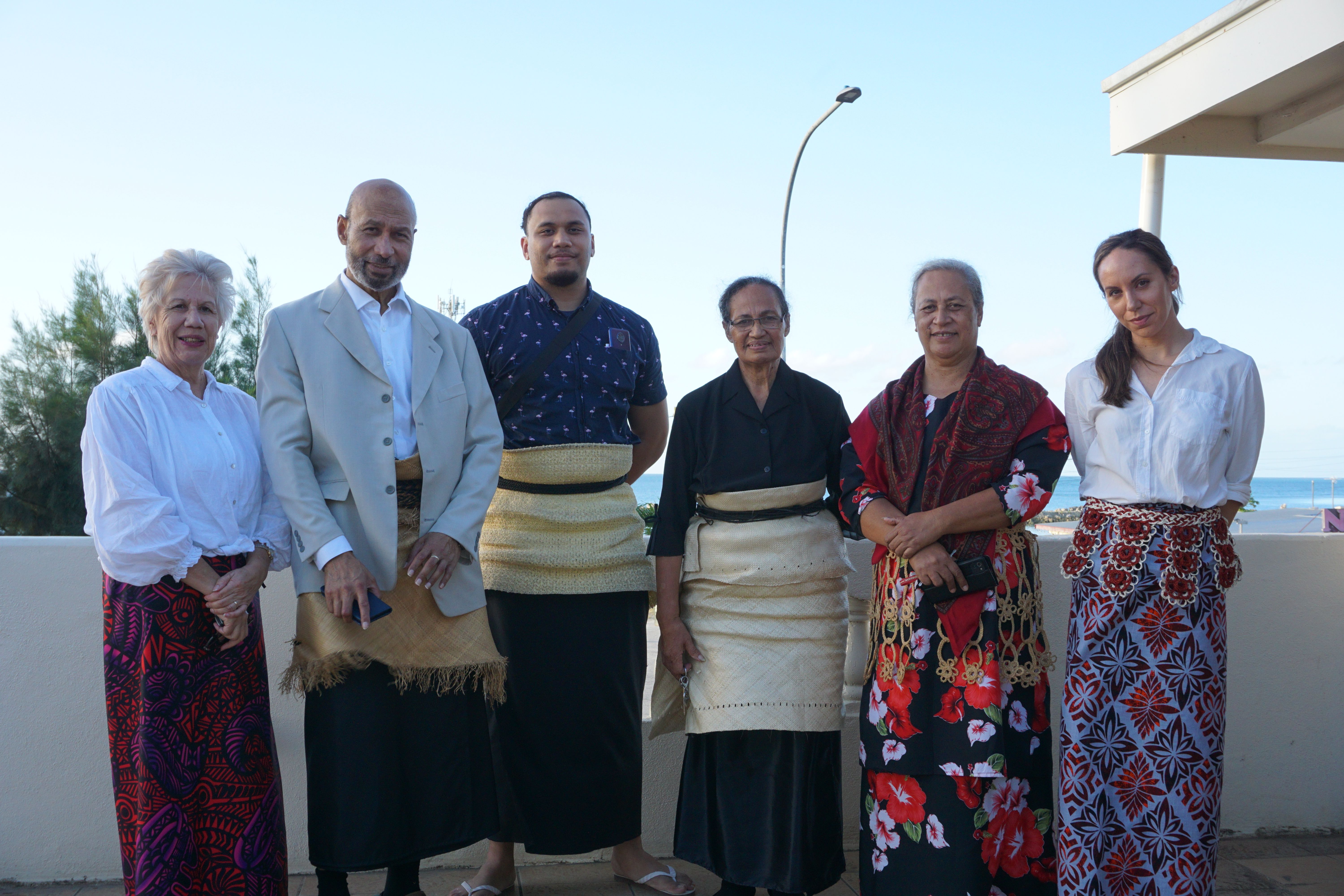
In-country research partners provided invaluable network connections. Pictured is the Nuku’alofa, Tonga research team (L-R) Prof. Sandy Morrison, Dr. Timote Vaioleti, three members of in-country research partners - Velata Tonga Ltd, and Lora Vaioleti. Photo/Supplied
Iwi leaders' key messages
With the leaders’ whakapapa stretching from the Far North to Te Waipounamu (the South Island) it shows there’s Māori unity for the huge challenges their Pacific relatives face.
Land rights activist, treaty negotiator, and Director at Wakatū Inc, Rore Stafford, ONZM says a values-based approach that empathises with the suffering of Pacific Islanders is key.
“We don’t have a treaty with Pacific peoples, but we have whakapapa together and shared values. How do we manaaki people when they have had to move from their whenua, when they are suffering?
“We must be open to listening to what they need - they have their own mana. We must go back to all our values and our tikanga (customs).”
Another leader highlighted risks to Pacific sovereignty and cultural and historical loss for those that may resettle in Aotearoa. Noting that New Zealand has not been good at creating space for different cultures.
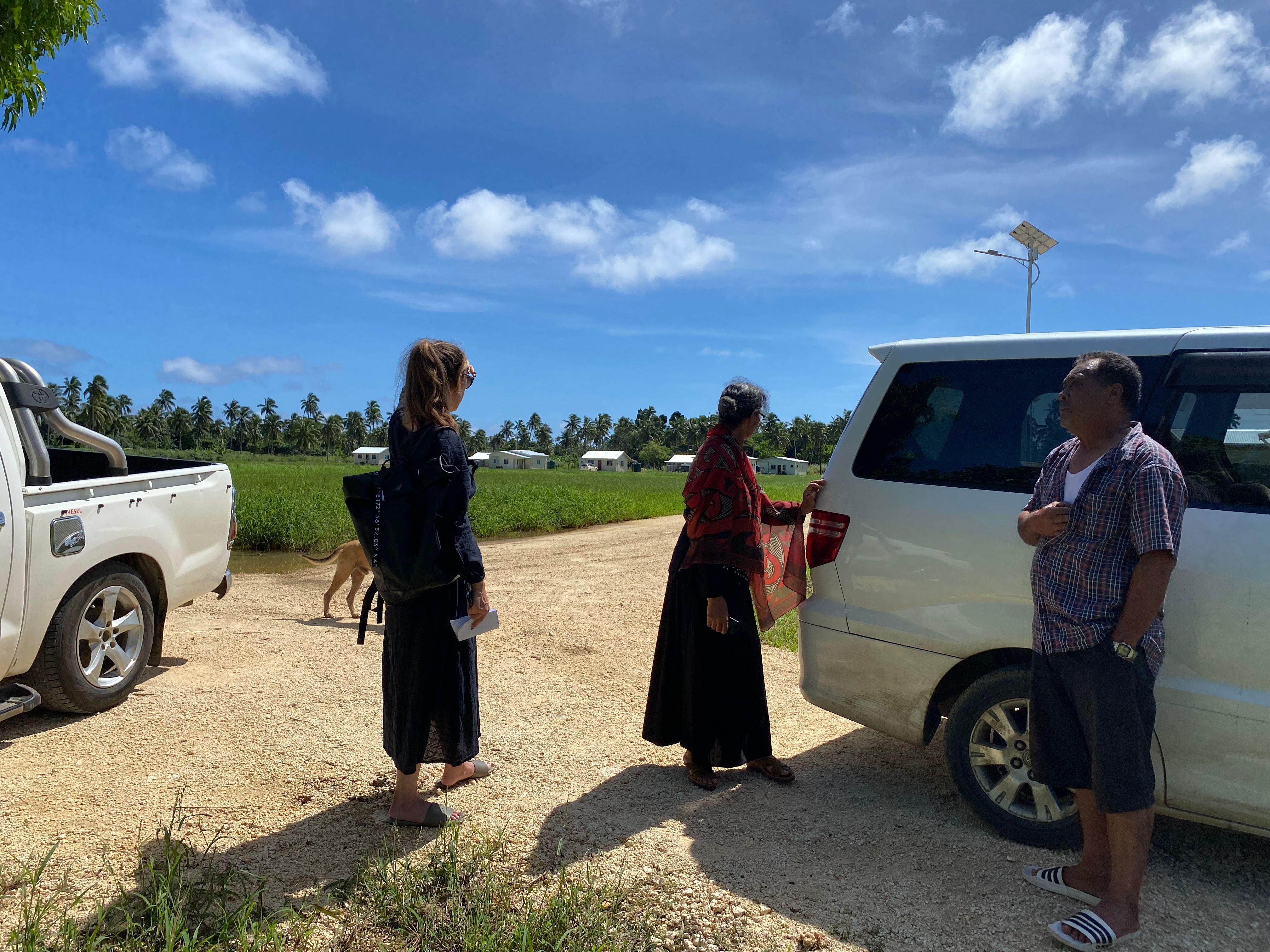
Surveying ‘Atataa Si’i in Tongatapu, a new village hosting relocated people from ‘Atataa island following Hunga Tonga-Hunga Ha’apai eruption. Photo/Supplied
Many of the leaders saw their role as advocates for Pacific peoples, and part of that responsibility includes practical help with homes, jobs, and business ownership.
Iwi leader Ngāhiwi Tomoana called for a dramatic shift in Aotearoa New Zealand’s approach to the Pacific.
“The focus needs to shift from aid to supporting economic development so that when people eventually come to Aotearoa, they can develop their own economy, have their own developments, their own training and their own reason for being.”
Iwi leaders involved in the discussion include:
Rore Stafford, ONZM (Ngāti Maniapoto, Ngāti Rārua, Ngāti Tama) Director at Wakatū Inc; Managing Director of Rore Lands.
Linda Tuhiwai Te Rina Smith, CNZM (Ngāti Awa, Ngāti Porou) Distinguished Professor at Te Whare Wānanga o Awanuiārangi.
Te Poa Karoro (Paul) Morgan, CNZM, QSO (Ngāti Rārua, Te Mahurehure, Ngā Puhi) Entrepreneur, trustee at the New Zealand China Council, former Chair at Wakatū Inc., former Chief Executive of the Federation of Māori Authorities.
Ngahiwi Tomoana (Ngāti Kahungunu) Chair Ngāti Kahungunu.
Aimee Kaio (Ngāi Tahu, Te Arawa, Ngā Puhi) Research and Innovation Director, Ngāi Tahu.
Jason Mika (Tūhoe, Ngāti Awa, Whakatōhea, Ngāti Kahungunu) Professor at Te Raupapa Waikato Management School and Te Kotahi Research Institute, University of Waikato
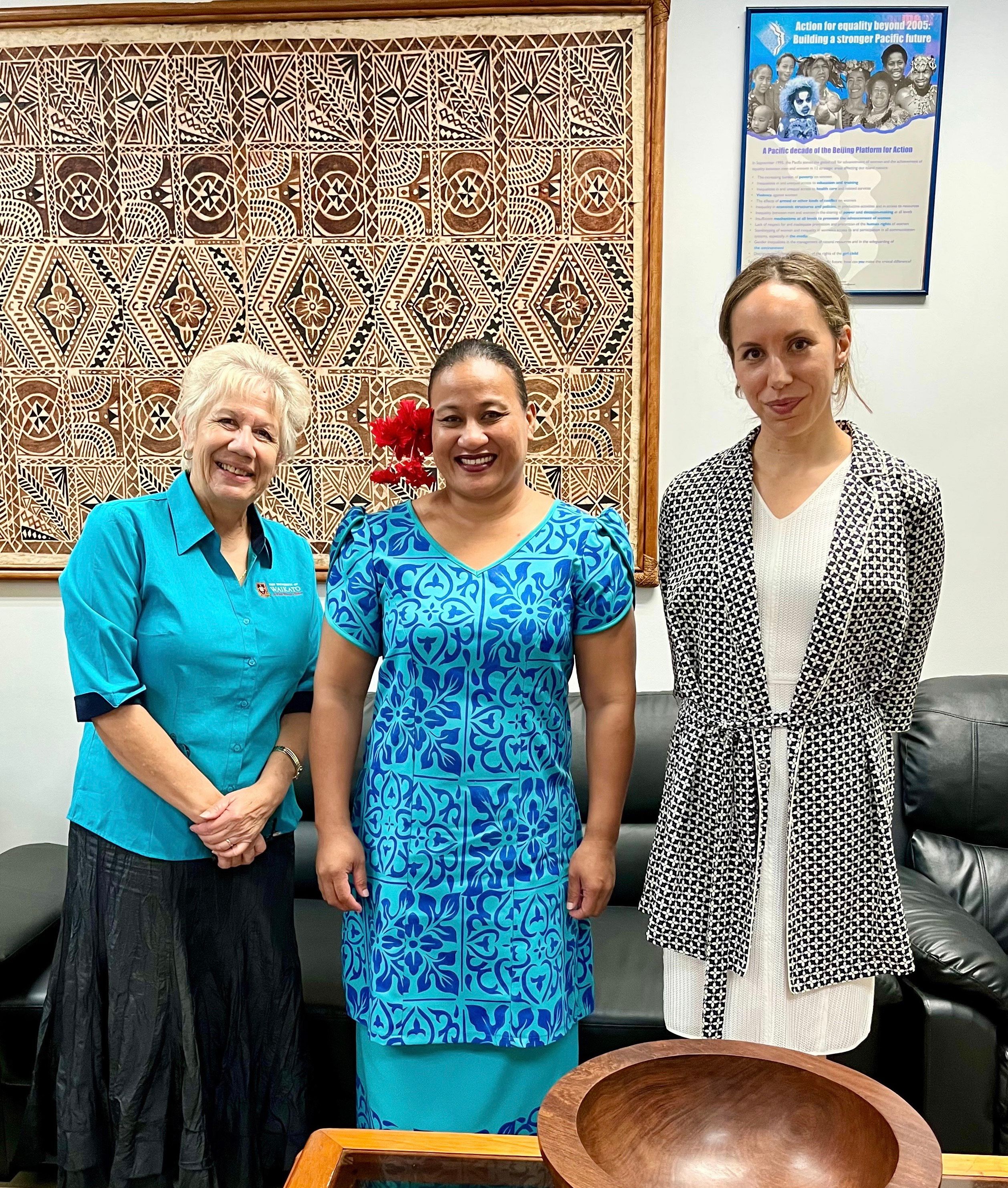
Professor Sandy and Lora with CEO of the Ministry for Women, Community and Social Development in Samoa Dr Mema Motusaga. Photo/Supplied
Call to change NZ's approach
Iwi leaders in the study acknowledge the deep connection Māori share with the Pacific. A connection allowing for understanding and addressing cultural needs effectively.
According to Morrison, if the Pacific climate crisis worsens to an unlivable state, proximity and the presence of families already in Aotearoa means it becomes a natural destination, particularly for those in Tonga and Samoa.
“The role of councils to free up land, I mean we’re talking about very sensitive issues, right? When it comes to land, particularly in New Zealand and in the wake of some of the really bad cyclones such as cyclone Gabriel that has happened.
“These are going to be sensitive issues, however, leaders like Ngahiwi have shown a lot of manaaki and a lot of generosity and called on people to make these significant shifts.”
Solutions offered from the talanoa include “tweaking” the Recognised Seasonal Employment (RSE) schemes to ease adaptation, stopping unreasonable conditionalities with grant funding and looking to long term sustainable economic growth.
Adding that she hopes her talks with iwi leaders also encourages forward thinking between Māori, the Crown, and Pacific peoples.